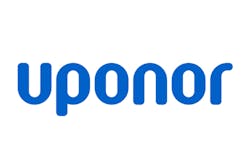Uponor Partners With IWSH in Honor of World Plumbing Day
APPLE VALLEY, MN — In recognition of World Plumbing Day, Uponor North America and the International Water Sanitation and Hygiene Foundation (IWSH) announced a new partnership that will help address critical water and sanitation inequities in the United States.
With more than two million Americans in marginalized communities trying to survive without running water, basic indoor plumbing, and sanitation, the need is dire. For example, families in the Navajo Nation drive hours for barrels of water; Central Valley California residents fill bottles at public taps because their water at home is not safe to drink; families in West Virginia drink from polluted streams; and parents in Alabama warn their children not to play in yards flooded with sewage.
Now, the coronavirus public health crisis has compounded these issues and placed a greater focus on the important role hygiene plays in stopping the spread of diseases.
“When it comes to drinking water, too many people in our country have been left behind,” says Bill Gray, president, Uponor North America. “Our partnership with IWSH highlights the valuable role that skilled plumbing tradespeople and quality products play in delivering life-changing water and sanitation solutions that last. We look forward to being part of rebuilding confidence in these communities and helping to shape their futures positively.”
Uponor’s support for 2021 will include both monetary and in-kind contributions toward IWSH’s mission to ensure as many people as possible have access to clean, safe water and plumbing systems.
The contribution will support IWSH initiatives that address critical water issues for marginalized communities in the United States, including deploying handwashing stations in Native American communities, installing innovative decentralized waste systems in Alabama, and providing solutions to water quality issues in small, disadvantaged communities in Texas.
“There is growing recognition of the negative public health and economic impacts experienced by communities who have long been neglected or denied basic water and sanitation services,” says Seán Kearney, managing director, IWSH. “We are grateful for Uponor’s partnership and willingness to rethink the challenges faced by these communities, so that we can continually improve how we work, and our projects can be deployed more effectively.”
The relationship between Uponor and IWSH began through the Radiant Professionals Alliance (RPA), an international trade association dedicated to increasing the use of radiant heating and cooling technologies through education and the development of codes and standards language that reflects best practices.
